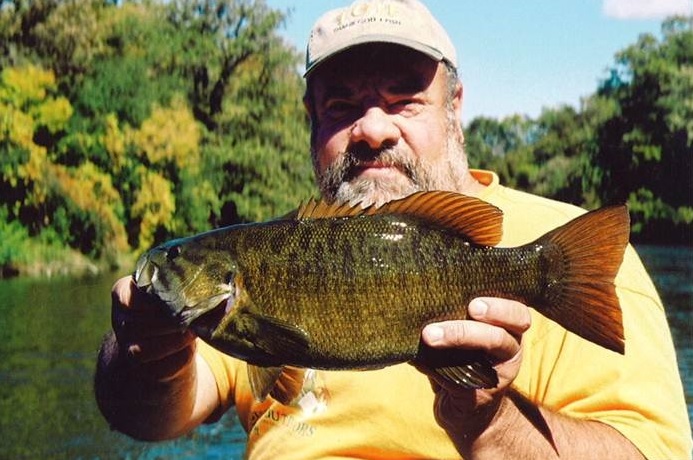
Some kids have trouble answering the question, "What do you want to be when you grow up?"
Don Gabelhouse was not one of them.
"I was fascinated by fish as a small child and knew I would someday become a fisheries biologist," Gabelhouse said. "When I took aptitude tests in high school, I would ask myself how a fisheries biologist would answer each question."
Determined to make his dream a reality, Gabelhouse studied at UNL in the late 1960s and early 1970s.
"This was before there was a recognized natural resources program and the fisheries and wildlife major was housed in the poultry science department," Gabelhouse said. "At the time, the only fisheries-related classes available were ichthyology and limnology."
However, many other courses provided Gabelhouse with a plethora of skills and experiences that would prove to be beneficial later on in life.
"Some of the non-ology courses I took at Nebraska such as human relations, technical writing, TV and radio, speech, drawing and biological illustration really helped in my career, especially as I transitioned from a field management biologist to a research biologist and eventually to an administrator," he said.
One course in particular, which covered aspects of TV and radio, was particularly memorable for Gabelhouse.
"The TV and radio class was my favorite, and it was taught by Sherry Erway who appeared on NET and KOLN back in the 1960s," he said. "I never had so much fun in a class and it prepared me well for making presentations."
Although UNL's fisheries and wildlife program was still in its infancy, Gabelhouse was actively involved with the UNL Wildlife Club.
"The club was very important to me and amounted to my social circle," he said.
Gabelhouse also had the opportunity to work with Howard Wiegers, professor emeritus who is considered the founding father of UNL's fisheries and wildlife program.
"Howard Wiegers was like a second father to me and many others," he said. "He got me excited about the field and I stay in touch with him today."
After graduating in January 1971 with a bachelor's degree in agriculture, Gabelhouse wasted no time in furthering his education so he could become a fisheries biologist.
"I started attending the University of Missouri two days after I graduated from Nebraska," he said.
In graduate school, he built upon his longstanding interest in sunfish. His thesis was titled, "Form and Function of Redear Sunfish Populations."
After earning his master's degree in fisheries biology, Gabelhouse began working for the Kansas Fish and Game Commission in August 1973.
"But I think my career began to take shape in the late 1970s and early 1980s when I started doing research, publishing and presenting the results, and became more active in the American Fisheries Society," he said.
In November 1993, Gabelhouse accepted a position as the Fisheries Division Administrator for the Nebraska Game and Parks Commission – and has served in this capacity ever since.
"I enjoy developing new projects with the staff and communicating their accomplishments to agency leaders and others," he said. "Dealing with personnel matters is what I find most challenging, even though that too can be rewarding when you are able to work things out."
Having fulfilled his lifelong ambition of becoming a fisheries biologist and investing more than two decades into his current position, Gabelhouse said that he's aware of the inevitable.
"I am 67 and retirement is imminent," he said. "I want to spend more time at the family cabin in Minnesota. But, I want to leave the Fisheries Division in good shape."
As for future generations of fisheries biologists and natural resources professionals, Gabelhouse has a few words of advice.
"Try to distinguish yourself from the masses," he said. "In addition to taking the required classes, take some classes you enjoy, and develop skills that most others in the natural resources field do not have. Employers look for innovative and creative people – try to become a Renaissance man or woman."
— Mekita Rivas, Natural Resources